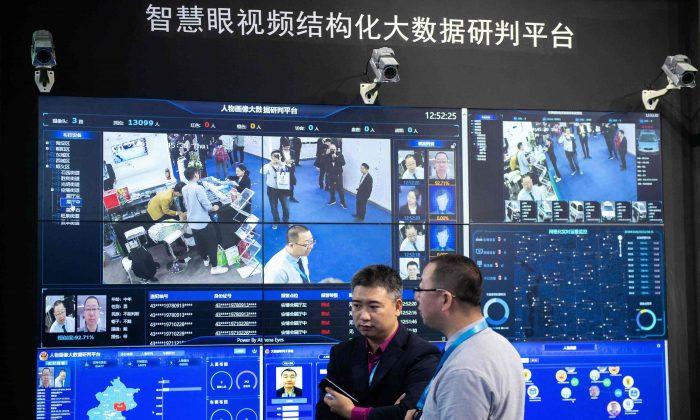The Commerce Department’s Bureau of Industry and Security, which oversees exports of sensitive U.S. technology and products with military applications, is seeking public comments on whether certain fields of “emerging technologies” should have export restrictions as a way to protect national security, a move that may have major ramifications for China’s high-tech sector.
Currently, the bureau has export bans or other restrictions in place, such as licensing, to ensure that sensitive U.S. technology doesn’t end up in nefarious hands. But with many cutting-edge fields, the lines are blurred between civilian and military uses.
The 2018 Export Control Reform Act, part of a recently passed defense bill, has authorized the bureau to regulate the export or transfer of “emerging and foundational technologies” for the sake of national security. The Nov. 19 notice identified 14 fields in which the Commerce Department is seeking more information, in order to determine the need for restrictions.
The fields include biotechnology; artificial intelligence (AI) and machine learning; robotics; advanced surveillance technology such as “faceprint and voiceprint”; and quantum computing.
While the notice doesn’t identify China or any other countries by name, it’s clear that the listed fields are those in which China has been aggressively developing in recent years for its national interests.
Robotics, AI, and semiconductor chips—which would fall under the Bureau’s “microprocessor technology”—and advanced materials are all part of the “Made in China 2025” industrial plan that Beijing released in 2015 as a blueprint for the country to become a tech manufacturing powerhouse within a decade.
Semiconductors and other high-performance chips that power electronic devices are at the center of the ongoing trade dispute between the United States and China, as the latter lags in the semiconductor industry and relies heavily on foreign imports. Just weeks ago, the Commerce Department enacted an export ban on Chinese chipmaker Fujian Jinhua.
A federal court quickly followed with an indictment against Fujian Jinhua, Taiwanese contract manufacturer UMC, and several individuals in connection with a scheme that allegedly sought to steal chipmaking technology from U.S. firm Micron.
In recent days, industry sources have told Japanese newspaper Nikkei and Taiwanese newspaper United Daily News that other Chinese chipmakers will soon face U.S. export bans as punishment for intellectual-property theft.
China announced its goal to become a world leader in AI back December 2017. Now, it is recruiting the country’s brightest young minds to develop AI weapons at the Beijing Institute of Technology.
In the advanced-materials field, a textbook case of academic espionage involved a Chinese doctoral student studying at Duke University who stole technology from his professor’s “invisibility cloak” lab. The student, Liu Ruopeng, returned to China and established his own company using the information. Chinese governmental entities invested millions in his startup.
China has already developed military applications in some of the burgeoning areas the U.S. Commerce Department has listed. In August 2016, China launched the world’s first quantum satellite. A September report released by the think tank Center for a New American Security analyzed China’s advances in quantum computing, noting that Chinese researchers have made advances in using quantum for radar, cryptography, imaging, and navigation.
“These advances could support the continued emergence of the Chinese People’s Liberation Army as a true peer competitor in these new technological frontiers of military power,” according to the report.
Meanwhile, the Chinese regime’s well-documented, omnipresent state surveillance system has already come under U.S. scrutiny. Congress has banned government agencies from buying surveillance products made by Hikvision—China’s leading manufacturer of surveillance cameras. Hikvision has collaborated deeply with Beijing to develop AI-enhanced technology for monitoring its citizens, especially the Uyghur minority population in Xinjiang.
A Nov. 18 report by the Financial Times revealed that Hikvision, in fact, sources many of its tech parts from U.S. companies, such as Intel, which provides processing chips; Nvidia, which provides deep-learning graphics chips; and Seagate, which designs custom data storage solutions for Hikvision.
According to the Financial Times, Hikvision is 42 percent owned by affiliates of CETC, a state-owned firm that supplies hardware to the Chinese military that was slapped with a U.S. export ban this year. Hikvision itself, which branched off into a separate company in 2001, has avoided a ban.






Friends Read Free